5 Things to Do in Little Tokyo, California
Never been before? We’ll be your trustee Little Tokyo guide with a day’s worth of fun things to do in Little Tokyo.
Maintaining a vehicle is hard work, but it is far superior to the alternative. Lack of care can lead to pricey repairs, low trade-in values, and poor performance. With a steady maintenance schedule and continual upkeep, however, your car can look and drive like a brand-new ride for years and years. It can be hard to know what maintenance work to do and when to do it, but with these guidelines, your vehicle will continue to look good and perform even better.

Does your business rank among the best in California?
nominate a businessLearn more about our selection criteria and vetting process.
Prevent sun damage by parking in the shade and using a window shade whenever the car could be exposed to the sun’s rays, which can make the car unbearably hot and cause the interior of the car to fade. Taking these protective measures helps to extend the life and increase the future resale value of the vehicle; just make sure not to park underneath trees that drip sap, as this can damage the paint on the exterior of the vehicle.
Large, heavy keyrings are not only bulky and loud, but they can also damage your ignition switch over time. Between the weight and the swaying that occurs when several keys are on the keyring, the tumblers inside the ignition wear down, so it is best to only drive with the single key in the ignition. If you notice any sticking when you put the key in and start the car, it is probably time to replace the ignition switch; this is a warning sign that it is going to fail soon, and avoiding replacement could end up leaving you stranded.

Take a look at your mirrors every time you get into the car to make sure they are clean and undamaged. Mirrors are one of the most important elements in keeping you safe on the road, so maintaining them is crucial. Prior to operating the vehicle, ensure that you can see clearly through each mirror, that they have not been repositioned by other people while your car was parked, and that the casing and the mirrors themselves have not been cracked.
Use floor mats to prevent damage to the carpet of the car. It can be easy to track in snow from the mountain, dirt from the hiking trail, and sand from the beach—particularly when leading an active lifestyle—but keeping the carpet in good condition can boost future resale values.
To help your car look better and last longer, wash the floor mats regularly to keep them in working condition, clean plastic mats with disinfecting cleaners, spray fabric mats with a hose to dislodge dirt, and vacuum the carpets to remove small particles.
Getting your car washed every other week will keep it looking brand-new and prevent any foreign elements from eroding the paint. Dirt on the inside and the outside may eventually cause damage that can be hard to fix, so maintaining the cleanliness of your vehicle can you save a lot of money in the long run. Take the time to detail the car yourself every other week, or take the car to professionals for a full cleaning at least once a month; vacuuming the seats and floors, using leather protectant on the seats (if applicable), gently wiping off the gauges, dusting the dashboard, and scrubbing from the rims to the roof will increase the car’s resale value and reflect the respect you have for your vehicle.
Oil keeps the engine lubricated and makes sure the car stays in good working order. If there is one thing you must do regularly, this should be it; nothing else will help the engine run more smoothly when done routinely, and nothing else will destroy the car faster when neglected. Change the oil at least every 5,000 to 7,500 miles, but it’s a good idea to check the oil much more often than this. Checking the oil monthly should be enough for a car to stay in top working condition, but if you suspect a leak or notice you have to add oil fairly often, you should check the oil about every two weeks and get any issues fixed as soon as possible.
To check the oil, park your car in a flat area. Pull out the dipstick, clean it off with a towel, reinsert it into the oil, and take it out to determine the oil level. If you need to add oil, use a funnel to avoid spilling the oil on other parts of the engine, and make sure not to overfill the tank.
Use a pressure gauge to check the tire pressure every month—and before any long road trips—to ensure you get optimal gas mileage and avoid flat tires. It’s best to check the pressure when the car is cold or only been driven a mile or two so you can get an accurate reading. But before you add air to the tires, check your car manual to verify the proper pressure level so you avoid overfilling them. You should also look for anything that could prevent the tires from working properly, such as nails you may have run over, cuts created by sharp rocks, unusual wear, or bulges in the sidewall. Take the time to check all of the tires each month, and remember to get your tires rotated every 7,500 miles so that they wear evenly—and that you get the most out of the tires before they need to be replaced.

Depending on how often you drive and under what conditions, you may need to replace the brake pads once per year. It is recommended that the average driver change the brake pads of their car every 25,000 miles; however, if you feel them wearing down before this time, take the car to a mechanic and have them checked. Worn out brake pads can lead to accidents and create loud noises from the contact of metal on metal, so it is critical that brake pads are checked regularly to keep the vehicle in tip-top shape.
Check headlights and taillights regularly to make sure they are in working condition. Park in front of a wall and turn on your headlights to see if they are working, and have a friend check your taillights to help avoid rear-end collisions. Having broken or missing lights is incredibly dangerous and can get you pulled over by the cops, but luckily, these parts are typically quick and easy to fix.
Keep the air filter working properly by replacing it annually or every 30,000 miles (whichever comes first). The air filter prevents pollen, dirt, and debris from entering the engine, so using an old filter for a prolonged period of time increases the chance of engine problems. While the air filter is an easy thing to forget about, replacing it during your annual oil change can extend the life of your vehicle and prevent larger, more expensive issues down the line.
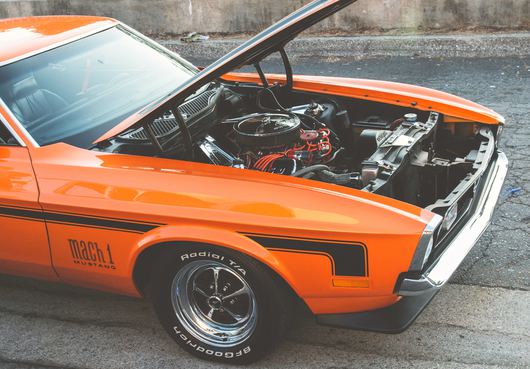
Get a thorough car check-up every couple of years to keep the various parts in proper working condition. Changing the automatic-transmission fluid; draining and flushing the cooling system; and replacing the drive belts, hoses, and timing belt (when needed) help the vehicle to function properly and prevent any further damage. Though each of these repairs comes at a cost, regular maintenance work can end up saving you a lot of money in the long run.
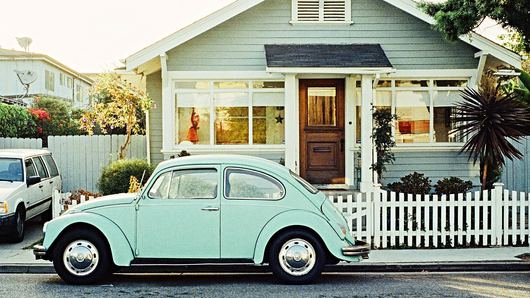
It is incredibly tempting to just leave a vehicle sitting in your garage or driveway when you do not expect to drive it for a while, but this can cause a slew of issues to develop. If you don’t think you’ll need your car for an extended period of time, make sure to get the car washed, fill it up with gas, keep it covered, and start it every once in a while so that the battery stays fresh.


Never been before? We’ll be your trustee Little Tokyo guide with a day’s worth of fun things to do in Little Tokyo.

People go on Memorial Day weekend getaways as an indirect celebration of life. How do you plan on celebrating the long weekend?

From undulating mountains, to coastal expanses, to verdant forests, here are some of the top spots for backpacking in California.

Settled off the California coast, the Channel Islands offer endless adventures. Here are the best things to do and how to get there.

